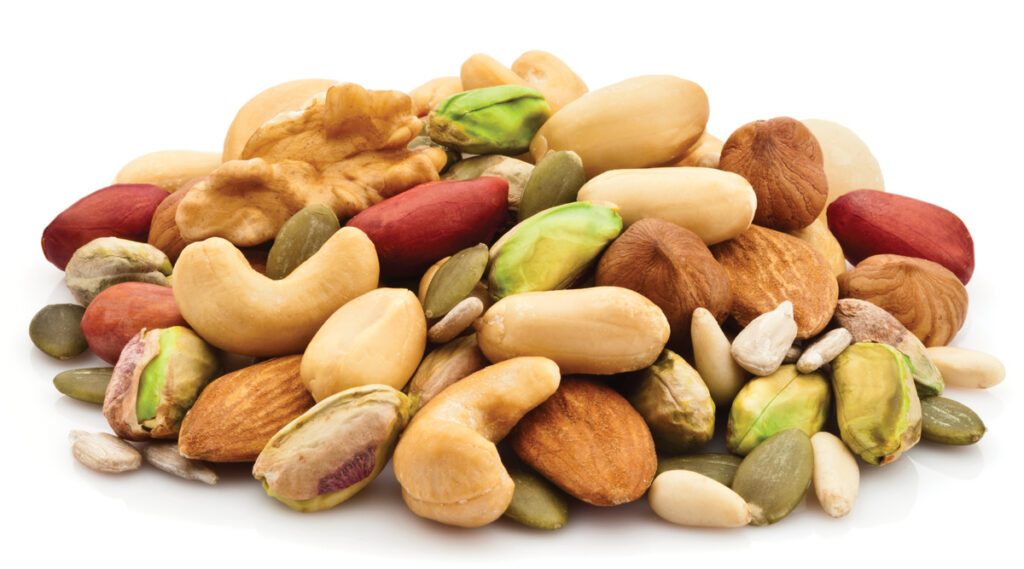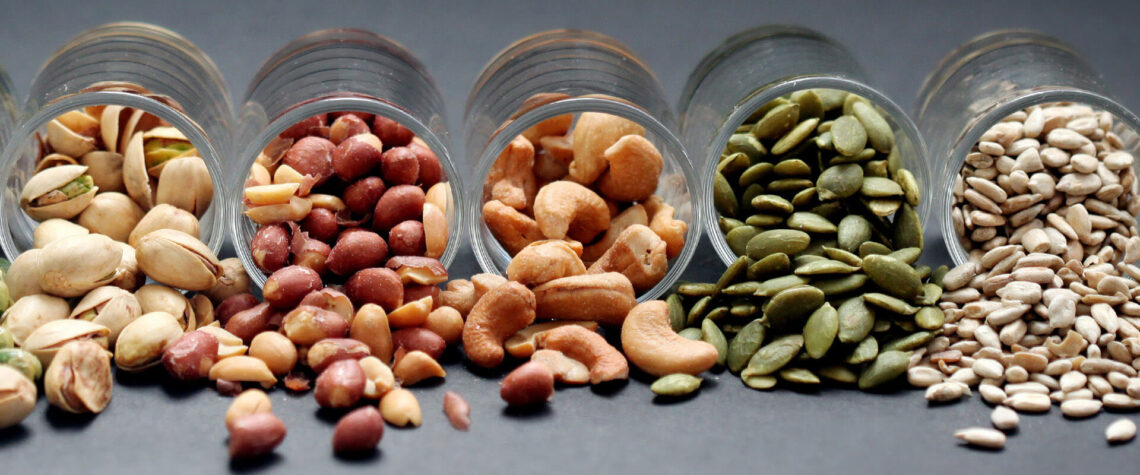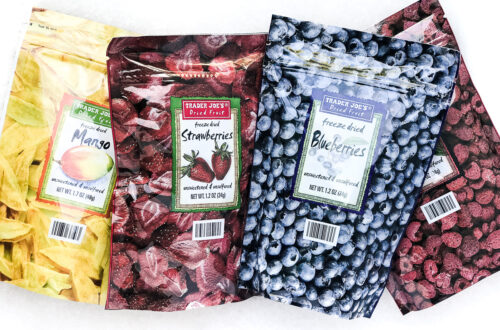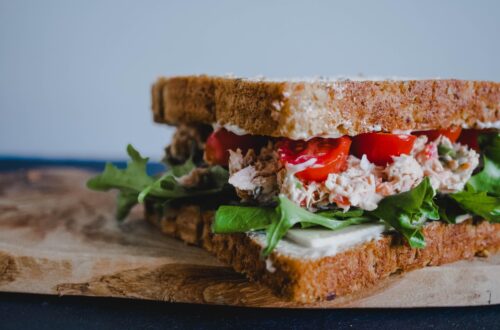Nuts and seeds are nutritional gems. They are an ancient food that has long been known to provide a wealth of nutritional benefits. For starters, nuts and seeds are extremely nutrient dense. They are an excellent source of protein, healthy fats, fiber, vitamins, and minerals. They also have an array of phytochemicals that have antioxidant and anti-inflammatory properties.
In addition, there is tons of data that suggest that the consumption of nuts and seeds reduces the risk of several chronic diseases, including cardiovascular disease (CVD), type 2 diabetes, and some forms of cancer.
Nuts and seeds also promote satiety, which makes them very effective in weight loss. North American Vegetarian Society (NAV) reported that a study of 65 people on a weight reduction program in 2003 compared a diet rich in almonds with one rich in complex carbohydrates. The almond group lost weight and maintained the weight loss at greater rates.

NAV also reported that direct cross-cultural comparisons reveal that in countries where people eat a lot of nuts, the incidence of cardiovascular diseases is lower than in countries where people eat few nuts. Other studies show a similar relationship with lower cholesterol levels.
Essentially, the consumption of a variety of nuts and seeds will have a positive impact on your health in a number of ways. Whether you enjoy them raw or roasted, shelled or unshelled, nuts are a great way to maintain healthy eating habits.
That said, here are some nuts and seeds that may be worth keeping on hand.
- Brazil Nuts (food source with highest amount of the essential mineral selenium)
- Cashews (have highest amount of iron than other nuts)
- Pine Nuts (have more manganese than even the RDA)
- Sunflower Seeds (richest source of vitamin E)
- Pistachios (best nut source of lutein, a phytochemical important for eye health)
- Flaxseeds (best plant source of omega-3 fats)
- Hemp Seeds (another excellent source of omega-3 fatty acids)





